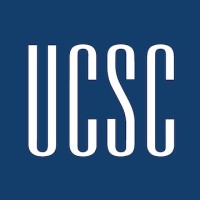Bachelor of Arts in Literature (Bachelors)
UC Santa Cruz
Santa Cruz, CA
The Literature Department at UC Santa Cruz fosters innovative and comparative approaches to reading and interpretation in courses in a variety of languages that encompass traditional literary history, cross-cultural inquiry, current theoretical debates, and new media.
Literature prepares us to understand and explore how we think, feel, and see the world; what we are and what we want to be, for ourselves and in relation to others. Literature is crucial for freedom and its many fold expressions, as seen in multiple fields for which the exploration and critical analysis of effective and transformational thought, feeling, and communication is key. Professional fields for which the study of literature is advantageous include careers in the teaching sector at its multiple levels, from primary school to college; the new technologies sector, such as game design and discourse and data analysis; governmental and non-profit work such as in municipalities, public service, and foundations; publishing and journalism; publicity and marketing in the old and new media contexts, and many more.
The Literature Department faculty requires that all literature majors have basic proficiency in a second language. Proficiency in more than one language enhances understanding of one's own culture and can be the access point to other literatures and cultures. Graduate programs in literature and other humanities disciplines generally require competence in at least one language other than English.
Mga Resulta ng Pagkatuto ng Programa
Following is a summary of the program learning outcomes for the Literature B.A.:
Students who complete the literature major should emerge with the following knowledge and skills:
✔ A capacity for critical analysis of texts that is attentive to:
- the formal structures, genres, and rhetorical strategies of different kinds of writing, public discourse, and media;
- the historical and social contexts of such texts;
- the role cultural and linguistic differences play in the interpretation of texts read in translation and in a language not one's own.
✔ Effective written communication that demonstrates the following abilities:
- to evaluate multiple interpretations of texts;
- to write effective argumentative prose;
- to situate texts in relation to a critical/theoretical tradition;
- to design and initiate a substantive independent project of research or creative activity.
✔ Experience reading a variety of texts:
- from a breadth of world cultures and traditions;
- from different historical periods, including the pre-modern;
- originally written in languages other than English.
✔ The ability to clearly conceptualize and formulate a research problem or issue
- historically, by understanding the trajectory of the problem thus conceived;
- theoretically, by considering alternative approaches to the problem and their implications and relevance for the proposed analysis'
- conceptually, by meta critically interrogating the central concepts involved in the formulation of the problem (i.e. their origins, implications, premises, limitations, etc.).












